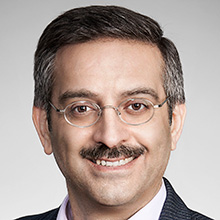
The Regional Security Situation Remains Challenging in the South Caucasus  By Benyamin Poghosyan, PhD, Executive Director, Political Science Association of Armenia
By Benyamin Poghosyan, PhD, Executive Director, Political Science Association of Armenia
The South Caucasus is facing multiple security challenges with no clear path to overcome them in the foreseeable future. The conflicts in Nagorno-Karabakh, Abkhazia and South Ossetia are hampering any efforts to have an inclusive regional cooperation, and are the key reasons for the strained Russia - Georgia relations and absence of relations between Armenia, Turkey and Azerbaijan. Meanwhile, there are no immediately apparent ways to move towards the settlement of these conflicts. Russia deployed military bases in both Abkhazia and South Ossetia, and demanded from Georgia to accept the geopolitical facts on the ground. READ MORE
- EGF Editor |
Published on EGF: 09.05.2018
| Security
-
Armenia’s “Velvet Revolution” and the Karabakh Conflict Resolution  By George Vlad Niculescu, Head of Research, the European Geopolitical Forum
By George Vlad Niculescu, Head of Research, the European Geopolitical Forum
On 17 April 2018, Armenia’s National Assembly overwhelmingly voted to install Serzh Sargsyan -former president of the country- as prime minister. They unequivocally ignored the “voice of the street” calling for a change of face at the helm of this rather small, but ambitious post-Soviet state. This vote was supposed to conclude a power capture scheme started back in 2015.[…] Under pressure from independent civil society, then president Sargsyan had promised not to turn up as candidate for the prime-ministerial post. READ MORE
- EGF Editor |
Published on EGF: 01.05.2018
| External Relations
-
What Next in Syria?  By Benyamin Poghosyan, PhD, Executive Director, Political Science Association of Armenia
By Benyamin Poghosyan, PhD, Executive Director, Political Science Association of Armenia
The April 14 US, UK and France joint strikes in Syria and the heated debates in the UN Security Council just before and after the military action once more emphasized the growing disagreements between Russia and the Western powers on Syria. However, the targeted and limited military strikes have no ability to alter the course of the conflict. Since the launch of the Russian military operation in September 2015, Syrian government forces, with the active support of Russian and Iranian units, have made tangible successes, including the establishment of full control over Aleppo and pushing back rebel groups from the suburbs of Damascus. READ MORE
- EGF Editor |
Published on EGF: 01.05.2018
| Security
-
Status Report: The Ukrainian Navy By Eugene Kogan, Tbilisi-based defence and security expert
Undoubtedly, the Russian annexation of Crimea in March 2014 caused serious damage to the Ukrainian Naval Forces. About 70 per cent of the fleet has been lost and what remained is in poor shape and in need of repairs.
The resulting conflict in the Eastern part of Ukraine drew attention, energy and resources away from the difficult state of the Ukrainian Navy towards the urgent needs of the army and air force. The perilous state of the economy has further decreased financial support for the Navy’s needs. In addition, a debate on the conceptual vision of the Navy divided the expert community and top naval personnel for about 15 months. READ MORE
- EGF Editor |
Published on EGF: 27.04.2018
| Markets
-
Expect No Changes on the Karabakh Issue in the Next Year or Two  By Benyamin Poghosyan, PhD, Executive Director, Political Science Association of Armenia
By Benyamin Poghosyan, PhD, Executive Director, Political Science Association of Armenia
On April 11, the incumbent President of Azerbaijan lham Aliyev was re-elected for his fourth term in office. Despite a boycott by the Azerbaijani opposition, as well as a tough assessment on elections from western observers, very few doubt that Aliyev will continue to rule in Azerbaijan. On April 9, Armenia finalized its transformation from semi-presidential system of government to a parliamentary one. The Parliament elected a new President - former Armenian ambassador in the UK Armen Sarkissian. His role defined by the new constitution is purely ceremonial. READ MORE
- EGF Editor |
Published on EGF: 27.04.2018
| Security
-
Deciphering Russia’s Messages in the Post-Soviet Space  By Benyamin Poghosyan, PhD, Executive Director, Political Science Association of Armenia
By Benyamin Poghosyan, PhD, Executive Director, Political Science Association of Armenia
Since the Russia – Georgia war in 2008 one of the key geopolitical features of the post–Soviet space has been the Russian effort to reinstall its influence over former Soviet republics and diminish the role of the Euro-Atlantic community. The 2008 war, the 2014 Crimea crisis, and the ongoing conflict in Eastern Ukraine are examples of Russian use of hard power to pursue geopolitical interests in the region. However, one of the key tools in the Russian arsenal to regain its dominant position within the post–Soviet world is the effective use of propaganda and information campaigns against the Euro-Atlantic institutions. READ MORE
- EGF Editor |
Published on EGF: 17.04.2018
| External Relations
-
Endless Endgame: Whither Russia-West Confrontation?  By Elkhan Nuriyev, BREC Global Energy Associate, EGF Affiliated Expert
By Elkhan Nuriyev, BREC Global Energy Associate, EGF Affiliated Expert
The world’s future is currently endangered by numerous fundamental threats, yet Western democracies fear only one – Vladimir Putin. On all geopolitical fronts of the emerging multipolar world the Russian President has smartly backlashed against all collective challenges mounted by the West. Small wonder the West’s incessant fear of Russia’s military power has made Putin the world’s most powerful man. What is currently happening in West-Russia relations is not a new Cold War; it is not even a renewed East-West divide. READ MORE
- EGF Editor |
Published on EGF: 16.04.2018
| External Relations
-
Russian–Turkish Rapprochement: Implications for the South Caucasus  By Benyamin Poghosyan, PhD, Executive Director, Political Science Association of Armenia
By Benyamin Poghosyan, PhD, Executive Director, Political Science Association of Armenia
Russia - Turkish relations are going through tremendous transformations. Just two and half years ago, Turkey was a target of harsh Russian criticism, with Moscow accusing Ankara of supporting the Islamic State, assisting various other terrorist groups deployed in Syria, and oil smuggling. However, since summer 2016, bilateral relations have improved significantly. Syria is a stark example of that thaw, seeing Russia tacitly supporting the Turkish incursion into Northern Syria in summer 2016 as well as turning a blind eye to the Turkish offensive in Afrin. READ MORE
- EGF Editor |
Published on EGF: 11.04.2018
| External Relations
-
How Do Russian Loans “Help” Armenia to Modernize Its Military Capabilities?  By Fuad Sahbazov, Baku-based independent regional security and defence analyst
By Fuad Sahbazov, Baku-based independent regional security and defence analyst
Armenia’s dependence on Russia makes it a pivotal foothold of Moscow in the South Caucasus, as the only host country of a Russian military base in the region, as well as a member in the Russia-led Collective Security Treaty Organization (CSTO), and the Eurasian Economic Union (EEU). While the growing arms race in the region and the recent escalation of tensions in Nagorno-Karabakh increased the vulnerability of Armenia, Russia seems to have reinforced its ability to ensure full control over Armenia. READ MORE
- EGF Editor |
Published on EGF: 11.04.2018
| Security
-
Iran and the US are slowly heading towards collision  By Benyamin Poghosyan, PhD, Executive Director, Political Science Association of Armenia
By Benyamin Poghosyan, PhD, Executive Director, Political Science Association of Armenia
US attempts to change the provisions of the nuclear deal with Iran will intensify over the next months, but things are only likely to come to a head in 2019.
Since the election of President Trump, US-Iran relations have deteriorated significantly. The new US administration has ratcheted up pressure against Tehran threatening to withdraw from the 2015 nuclear deal, also known as JCPOA. The key members of President Trump national security team have accused Iran of supporting terrorism, sowing chaos in the Middle East, and creating a vast network of non-state actors vehemently countering US interests in the region. READ MORE
- EGF Editor |
Published on EGF: 04.04.2018
| Security
-
